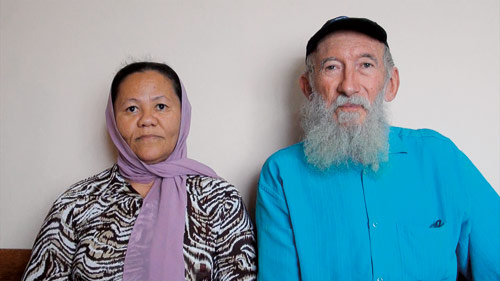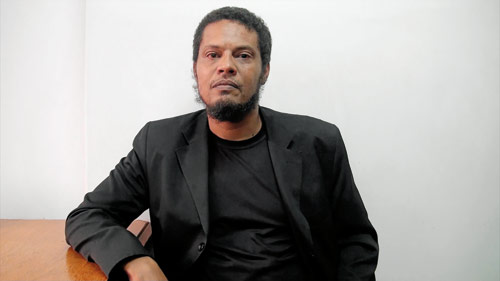Counting the Stars
2014
Nurit Sharett
On a journey that led her from Natal to São Paulo, stopping in Campina Grande, Recife and Belo Horizonte along the way, Nurit Sharett assumed a foreign viewpoint in her documentation of Brazil. Still, the search for a different culture wasn’t the motive behind her trip.

An Israeli of Jewish origin, Nurit is interested in identity-themed constructions. In her films, which are documentary in nature, the artist always provides the central thread in the investigation, delicately measuring her proximity or distance to the subjects of her work. In Brazil, she travelled to meet self-proclaimed descendents of the New Christians – or anussim – Jews who were forced to convert to Catholicism during the Portuguese Inquisition of the fifteenth century and who took refuge in Brazil.

Five centuries later, heirs to this hidden memory ask to return to Judaism. ‘Since we are a people of miscegenation, of mixed races, we can be anything inside of this mix’ – something which, for one of the anussim interviewed by Sharett, is a condition of his hybrid identity. This, to another of the film’s characters, an orthodox rabbi, sounds like the weakening of this identity: ‘It has been over five hundred years since the Inquisition. Five hundred years is a long time: many things have happened, many influences, lots of miscegenation, lots of alienation, lots of assimilation.’

Preserving the specificity of each discourse and not flattening any of them, the artist edits the gathered interviews in Counting the Stars, a three-channel video, as if they were part of a long, single conversation, giving equal weight to the rabbi, the anthropologist, the recent convert, the psychoanalyst, the poet and the young man whose mother always told him he was Jewish and who wishes to be recognised as such. Distanced from the discourses of the institutions that legitimise them as real or denounce them as fictional, each story becomes plausible as history and each interview subject becomes the protagonist of his or her own identity. – BS
